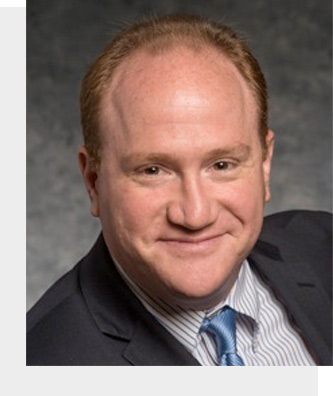PROFESSIONAL PSYCHIATRIST
About Dr. Aaron Krasner
- Practical help and guidance
- Collaborative decision-making
- Thoughtful recommendations
- Accessibility to established patients
- Professionalism and reliability

ABOUT
My Education & Experience
Dr. Krasner joined Teach for America in 1997 as a bilingual educator prior to studying medicine. After securing a multiple subjects credential and logging five years of classroom teaching experience, he transitioned to medicine because he wanted to develop himself as a resource to young people and families. He completed his MD at Northwestern University’s Feinberg School of Medicine prior to completing internship, residency, fellowship, and a post doctoral fellowship in developmental neuropsychiatry at Columbia University. Thereafter he became the medical Director for the Adolescent Transitional Living Program at Silver Hill Hospital prior to committing himself to the private practice of child, adolescent, and adult psychiatry in Wilton CT. Dr. Krasner has trained in and published original research on psychiatric genetics, psychotherapy, and psychopharmacology, earning the title of Assistant Professor in the department of psychiatry at the Yale School of Medicine.
Dr. Krasner’s theoretical orientation is developmental, psychodynamic, and pragmatic. He views children and adults as traversing a developmental trajectory in which context, history, and biology codetermine subjective reality. His work is guided practically by intersubjective psychoanalytic theory in which nonjudgemental joining and emotional availability power the development of rapport and ultimately psychic growth. Dr. Krasner helps his patients by any means necessary including individual and family therapy, pharmacotherapy, consultations with experts, and collaborations with higher levels of care when indicated. Dr. Krasner defines clinical success as the progressive capacity for patients to accept themselves and the antecedents to their troubles while working towards the amelioration of problems in establishing a life worth living. He works with patients toward this goal by enhancing motivation to prioritize and valorize treatment as a compassion practice capable of disrupting psychopathology and sustaining its gradual remission.
Dr. Krasner and Tracey Masella founded the Krasner Adolescent Institute in the Fall of 2022. The Institute is solely focused on the outpatient assessments of complex teens and families that have not met with treatment success. Throughout the course of their ten year collaboration, Krasner and Masella have noted substantive limitations in conventional assessments - mostly the absence of integration. They have convened a team of experts who share their clinical concern with assessment as usual and have committed time, energy, and effort to a collaborative assessment procedure in which typically siloed practitioners assemble twice weekly to share in and develop a robust, biopsychosocial understanding of the individual child, parents, and the family system. While this interdisciplinary model is hardly novel, the application to contemporary child and adolescent psychiatry outpatient practice certainly is.
Dr. Krasner is preoccupied with transforming psychiatric and psychological assessment from a perfunctory, marginally relevant task into a dynamic process that yields superior results capable of powering treatment planning and treatment plan implementation for teens and families most deserving of relief, emotional growth, and stability.
CV - Download PDFVision
I help individuals and families create, nurture, and sustain lives worth living. My role in this process is clear: I identify, diagnose, and treat mental illness when impairment derails function.
Effective treatments occur in phases. Phase I, which lasts from weeks to months, focuses on stabilization and begins with rapport building and assessments. Patients actively and dangerously harming themselves may require inpatient or residential treatment and the decision to explore those options is made collaboratively. Patients can expect that I will assist with making referrals, coordinating care and communicating with all members of the team. A simple example of this clinical scenario would be an unstable substance use disorder requiring a period of sobriety to jump-start the recovery process. The hallmark of Phase I is acceptance: patients must come to appreciate that they are in distress, in need of assistance, and in a state of dependency that most people have worked so hard to avoid.
Once stable, patients enter Phase II - a working through phase – during which patients come to accept the contributing environmental and genetic factors that have determined the natural history of their problems. Phase II is defined by powerful oscillations between acceptance and change – the heart and soul of the philosophy behind Dialectical Behavior Therapy (DBT). I like this model because it’s practical and understandable: we must identify a problem (acceptance) to have hopes of addressing it (change). So much happens therapeutically during this phase, but if treatments are effective they must fundamentally address this clinical situation. Phase II is understandably trying: we don’t really want to accept the problems or take on their treatments. Consistent, professional, and reassuring collaboration with a therapist is essential and can moderate the difficulties inherent in treatment.
Phase III is a period of transition back to life outside of treatment. This phase challenges patients to tolerate loss, accept their own limitations and those of the people they love, and learn to love themselves despite disappointments and sorrows. Phase III has no end, but frequency of visits decreases progressively until a mutually agreeable end can be arranged.
As patients traverse the phases of treatment, I stay involved by coordinating with other providers. Experience has taught that having the holistic approach of a team (through referrals, recommendations, and connections with a central coordinator) results in a better treatment outcome.
Special Interests
- Psychopharmacology of Mood and Anxiety Disorders
- Child, Adolescent, and Family Psychiatry
- Research, Psychiatric and Medical Student Education
- Psychotherapy
- Technology in Psychiatry
Aaron Krasner MD
- Assistant Professor of Clinical Psychiatry, Yale School of Medicine
- CEO, Krasner Adolescent Institute
- President Elect, American Society for Adolescent Psychiatry
- Distinguished Life Fellow, AACAP
- Phone: 203-762-6442
- Alternate email: akrasner1@gmail.com
 Aaron Krasner MD
Aaron Krasner MD